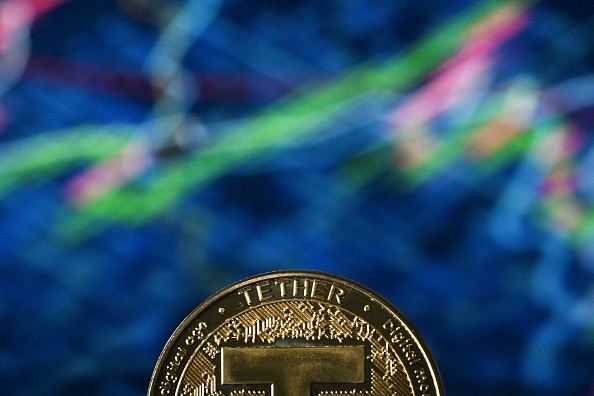
As the world of cryptocurrency sees a dramatic down spiraling in prices, stablecoins like Tether are in arguably the worst spot as investors grow concerned not merely in the stability of said stablecoins but likewise in their overall backing. Last Thursday, the world's largest stablecoin, known as tether (USDT), dipped below its $1 peg, raising immediate concerns on its prowess in the aftermath of Luna and terraUSD's plummet.
Following the depeg, investors quickly started cashing out, much like the entirety of the crypto market over the past several weeks. Thus far, tether has been cleaned of a whopping $7.4 billion as its market cap drops from the high of $83 billion on May 11 to a current $75.6 billion. The stablecoin lost its dollar peg last week by a remarkable 5% and, although rebounding slightly, sat at around $0.998 over the course of the next two days.
According to CoinMarketCap, Tether now sits at around $0.9988. The situation on Thursday, coupled with the still dire circumstances of algorithmic stablecoin terraUSD, has drawn much attention to the world of cryptocurrencies, specifically stablecoins themselves. While terraUSD is different in that its price point is pegged to various code and algorithmic anomalies, tether, on the other hand, is supposed to be backed 1-to-1 with the US dollar.
Despite losing its peg, tether remained adamant in its standing by honoring all redemptions from verified customers even amidst drastic market volatility. May 12's $2 billion in processed assets prove its convictions, but investors remain skeptical, if not wholly uncertain, of the future of the stablecoin and crypto market in general.
But one thing that does remain rather unclear is the full picture behind tether's reserves. The company has remained tight-lipped on its backing, evidenced best via CNBC's request from July of 2021, in which the firm relayed a full audit would be made public in a few "months," yet zero official information has been published.
Related Article: Tether CEO Under Fire for Headquarters in China | Sued for Unpaid Invoices and Tax Fines
Following an $18.5 million fine headed via the New York attorney general, tether had to disclose various underpinnings that make up the bulk of the firm's reserves, which include a myriad of assets, like $24.2 billion worth of unsecured company debts, called commercial paper. Another $34.5 billion was attributed to unidentified Treasury bills that hold a maturity of fewer than three months. Only around $4.2 billion in cash actually made up the coin's backend, proving just how uncertain these so-called stablecoins actually are.
Tether's Chief Product Officer, Paolo Ardoino, has been readily vocal on Twitter in stamping out any dismay and concern headed by investors and enthusiasts alike. In reply to CryptoQuant CEO, Ki Young Ju, who asks if "$74B worth of USDT is fully backed or not," Ardoino continues to claim that "Tether is fully backed," yet provides no real proof other than, "We have redeemed 7B in 48h, without the blink of an eye."
Tether is among the most important forms of cryptocurrency on the market, as it offers a safe bet for those wishing to enter the fold without potentially losing out on big volatility dips. It acts as a pseudo-crypto reserve in itself, pushing upwards of billions in transactions a day in various trades, and is a safe zone in times just like these, wherein extreme volatility in the crypto market has investors more than a little spooked.
Still, the availability of the stablecoin and uncertainty of its backing has many questioning its importance and impending regulation. Following the downfall of terraUSD, US Treasury Secretary Janet Yellen highlighted various convictions last week on the nature of stablecoins in relation to the US economy, citing potential instability if said crypto is left unchecked. Although not set in stone, her pleas to implement regulation on stablecoins and crypto, in general, may well land strong if lawmakers actually move for approval by late 2022.
Although little in the way of moving convictions to his side, Ardoino did voice hopefulness in the coming advancement of crypto-friendly auditing firms, citing in yet another reply tweet that "we're working on an audit" yet seemingly is putting all the blame on general auditing firms as being too harsh on the crypto market. According to Barclays, an estimated 50% in USDT redemptions would be required to wholistically "exhaust Tether's liquid holdings and provoke broader stresses across the money markets."
ⓒ 2025 TECHTIMES.com All rights reserved. Do not reproduce without permission.




